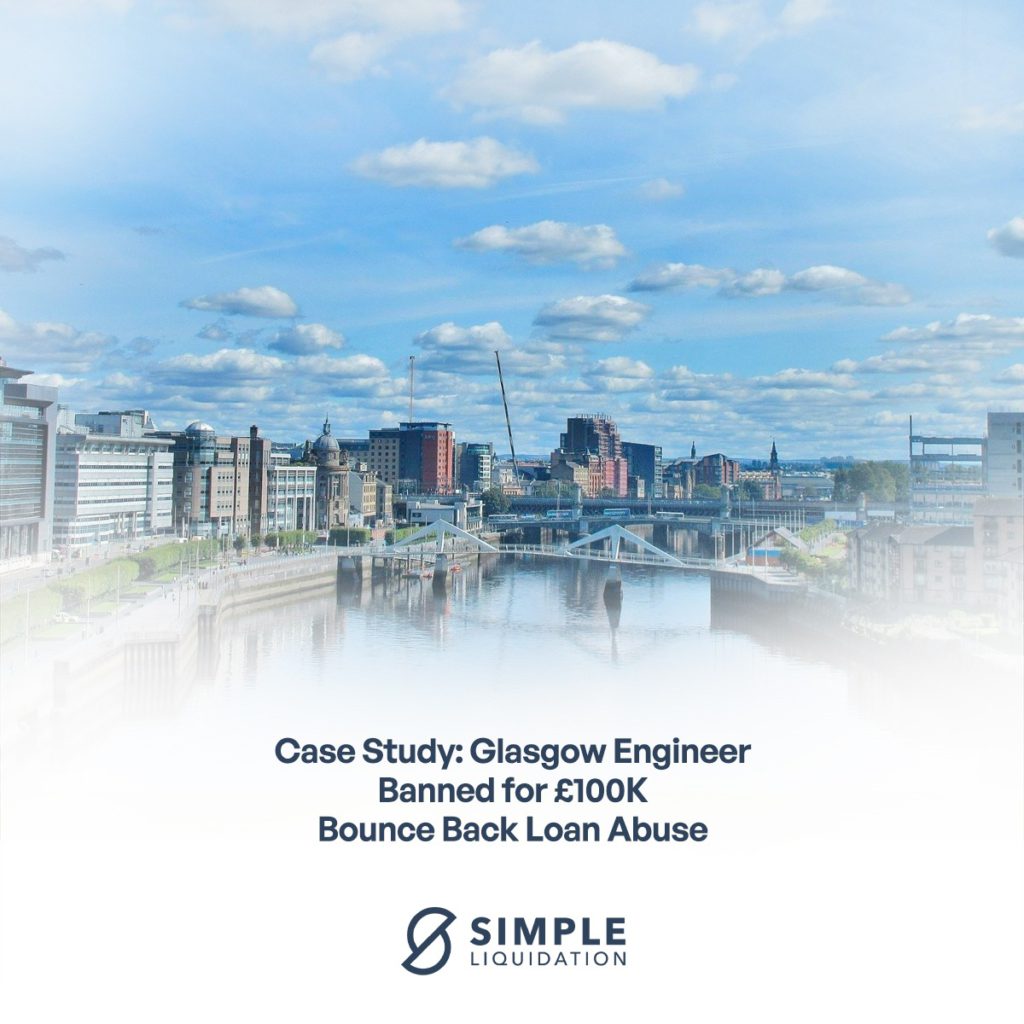Covid was a difficult time for businesses all over the UK as the pandemic brought unprecedented restrictions on the public and, therefore, limitations on UK businesses as well. The government was forced to step in to make sure that people were able to keep their businesses up and running whilst the coronavirus and subsequent lockdowns were taking place. This came in the form of a Bounce Back Loan Scheme.
The Bounce Back Loan Scheme made it so that businesses were given access to emergency finance throughout the pandemic. Organisations could claim up to £50,000 as part of their Bounce Back Loan, with the only condition being that it has to be used for the economic benefit of the business.
Issues with the Use of a Bounce Back Loan
Though it might make sense for the bounce back loan to be used for the economic benefit of a business, there are a few problems in that there is no definition, and therefore, the guidelines on what the economic benefit of a business is are broad. As such, there are a lot of organisations who were unsure whether or not they were using it correctly. Common instances of misuse include but are not limited to:
- Funding an increase to the dividends and salaries that are paid to a director
- Using the money and giving it to a third party, like a friend or a family member who is not actually involved in the business
- Transferring the money into someone else’s bank account as a lump sum
- Purchasing new personal assets using the funds that have been provided from the bounce back loan scheme that does not have any benefit for your company
Blatant Cases of Misuse
There are a lot of business owners who might have misused their bounce back loan without any malice; however, there are then cases where the use is completely blatant. This is where the money has been used as a means to pay for personal assets, or the money claimed is an inaccurate reflection of what the business earns. The amount assigned to the bounce-back loan is done proportionally to what the business usually makes, and as such, there were a lot of organisations who lied about their income as a means to claim more. One of the company owners who was caught out for doing this was John Gerard McGarvey.
John Gerard McGarvey
John is 37 years old and from Rutherglen. He was recently disqualified as the director of his business for 11 years thanks to misusing his Bounce Back Loans. He claimed a total of £100,000 and then used the money for his own personal benefit as opposed to the economic benefit of his business.
The Business and Their Loans
John was the owner and sole director of his organisation called CKO Civil Engineering and Surveying Ltd. CKO was originally incorporated back in October 2019 but, after some hard times, was eventually liquidated in November 2021. During the hardships of covid, CKO applied for a bounce-back loan of the full £50,000, claiming that the previous year the company had turned over a profit of around £225,000.
Businesses were unable to apply for an additional loan unless the amount they had borrowed was less than the maximum of £50,000. This is what CKO originally claimed but it didn’t stop them from reaching out to another bank, asking for a further £50,000 but this time stating their 2019 profit had been £218,000.
Liquidation and Subsequent Discoveries
Following the pandemic, the company struggled to keep going and ended up owing about £183,000 to different creditors. This led to mandatory liquidation and as such, an investigation by the Insolvency Service. As the investigation took place, it was found that John had applied for two loans, a blatant breach of the rules set out by the scheme. Not only this but the income he claimed for the year before varied for both applications, and they were exaggerated figures too. After studying the company accounts, it was found that the turnover of the company was about £46,400, not the £200,000+ that he had claimed. Finally, the money that John received had been used for his own personal gain rather than as a means to help his business.
The Penalty
After reviewing the evidence, the secretary of state decided that John should be disqualified. John didn’t try to dispute the claim, and as such, the whole case was fairly straightforward. John’s disqualification began on 28th October 2022 and is set to last for 11 years. Disqualification means that John is unable to be directly or indirectly involved in a business. This means the business’s promotion, management or formation. The only time this could be turned over is if his involvement is approved by the court beforehand.
The manager of the investigation, Steven McGinty commented on the case, saying, “not only did John McGarvey grossly exaggerate the company’s turnover to secure an initial loan, he also applied to a second bank for another loan his company wasn’t entitled to. To compound his actions, he used the money for his personal gain. His 11-year ban should serve as a warning.”
Does Your Business Need Financial Help?
A lot of organisations used bounce-back loans during the pandemic, given the hardships that came with covid were unprecedented and led to significant issues. Even though the pandemic restrictions have ended, that doesn’t now mean that businesses are in the clear as the likes of the energy crisis, rising inflation and rising interest rates are causing more problems. As such, you may be feeling some pressure on your business and want to know what you can do about it.
At Simple Liquidation, we will be able to have a look at your business and provide advice on what the best way forward for you would be. If you have any questions or would like any further information, then do not hesitate to get in touch.




